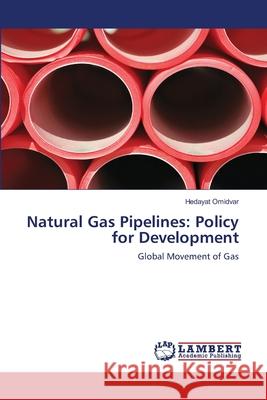Natural Gas Pipelines: Policy for Development » książka
Natural Gas Pipelines: Policy for Development
ISBN-13: 9783838347127 / Angielski / Miękka / 2010 / 208 str.
Pipeline transport is the transportation of goods through a pipe. Most commonly, liquid and gases are sent, but pneumatic tubes that transport solid capsules using compressed air have also been used. As for gases and liquids, any chemically stable substance can be sent through a pipeline. Therefore sewage, slurry, water, or even beer pipelines exist; but arguably the most valuable are those transporting fuels: oil (oleoduct), natural gas (gas grid) and biofuels Dmitri Mendeleev first suggested using a pipe for transporting petroleum in 1863. For natural gas, pipelines are constructed of carbon steel and varying in size from 2 inches (51 mm) to over 60 inches (1,500 mm) in diameter, depending on the type of pipeline. The gas is pressurized by compressor stations and is odorless unless mixed with a mercaptan odorant where required by a regulating authority.
Pipeline transport is the transportation of goods through a pipe. Most commonly, liquid and gases are sent, but pneumatic tubes that transport solid capsules using compressed air have also been used. As for gases and liquids, any chemically stable substance can be sent through a pipeline. Therefore sewage, slurry, water, or even beer pipelines exist; but arguably the most valuable are those transporting fuels: oil (oleoduct), natural gas (gas grid) and biofuels Dmitri Mendeleev first suggested using a pipe for transporting petroleum in 1863. For natural gas, pipelines are constructed of carbon steel and varying in size from 2 inches (51 mm) to over 60 inches (1,500 mm) in diameter, depending on the type of pipeline. The gas is pressurized by compressor stations and is odorless unless mixed with a mercaptan odorant where required by a regulating authority.











